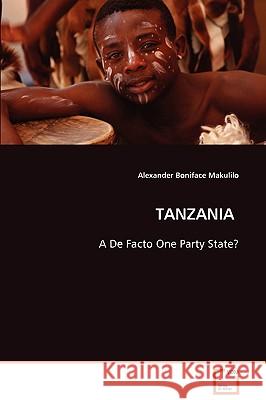TANZANIA - A De Facto One Party State? » książka
TANZANIA - A De Facto One Party State?
ISBN-13: 9783639086980 / Angielski / Miękka / 2008 / 132 str.
After nearly two decades of multiparty democracy in Tanzania, a clear indication of democratic reversals is more evident. The opposition parties, the parliament, electoral commissions, institutions of accountability, civil society organizations, and the media have remained weak to envisage democracy. This book contains an in-depth and rigorous analysis of the factors contributing to and militating against democracy in Tanzania. Using a state-party fusion thesis, the book provides a deeper understanding of democratization by examining the institutions and behaviour of political actors as well as historical and contemporary dynamics into a theoretical framework that underscores the anomalies, dilemmas and paradoxes in practicing democracy. It argues that the ruling party is a State-Party in its own right and hence suffocates the political space for other actors to play their roles. The book breaks a new ground by providing thoughtful provoking insights into democracy in a country from the developing world. The work will be of interests to scholars and practitioners of politics."
After nearly two decades of multiparty democracy in Tanzania, a clear indication of democratic reversals is more evident. The opposition parties, the parliament, electoral commissions, institutions of accountability, civil society organizations, and the media have remained weak to envisage democracy. This book contains an in-depth and rigorous analysis of the factors contributing to and militating against democracy in Tanzania. Using a “state-party fusion” thesis, the book provides a deeper understanding of democratization by examining the institutions and behaviour of political actors as well as historical and contemporary dynamics into a theoretical framework that underscores the anomalies, dilemmas and paradoxes in practicing democracy. It argues that the ruling party is a “State-Party” in its own right and hence suffocates the political space for other actors to play their roles. The book breaks a new ground by providing thoughtful provoking insights into democracy in a country from the developing world. The work will be of interests to scholars and practitioners of politics.











